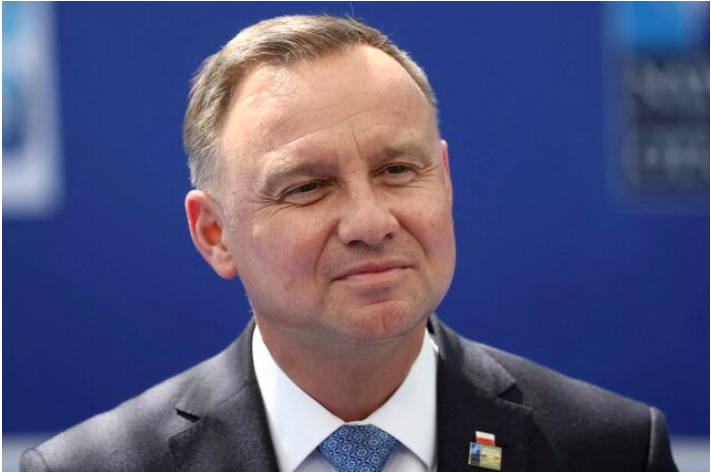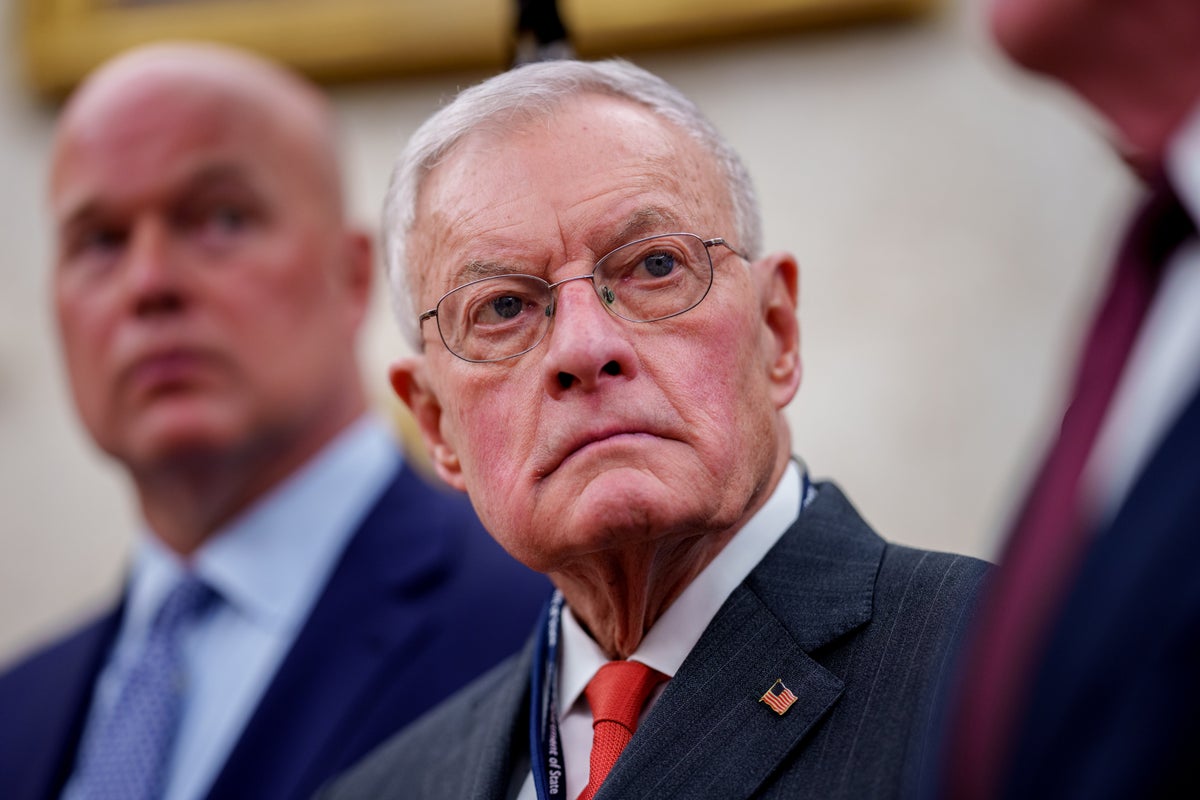Polish President Andrzej Duda: Only the U.S. and Trump Influence Can End Russia's War in Ukraine - Polish President Andrzej Duda: Only the U.S. and Trump Influence Can End Russia's War in Ukraine - Tekedia Forum - Tekedia

Only the U.S. Can Stop Russia: Polish President Duda Pushes for Tough Peace Deal with Compromises on Both Sides
In a candid and wide-ranging interview with Euronews, Polish President Andrzej Duda made headlines by asserting that only the United States — and particularly former U.S. President Donald Trump — has the leverage to end Russia’s war in Ukraine. Duda's remarks reflect growing concern across Eastern Europe about the need for decisive leadership and strategic unity among Western allies as the war grinds on with no clear resolution in sight.
"Only the U.S. Can Stop Putin"
Register for Tekedia Mini-MBA edition 17 (June 9 – Sept 6, 2025) today for early bird discounts. Do annual for access to Blucera.com.
Tekedia AI in Business Masterclass opens registrations.
Join Tekedia Capital Syndicate and co-invest in great global startups.
Register to become a better CEO or Director with Tekedia CEO & Director Program.
“Today my conclusion is absolutely unequivocal — there is no one outside the United States who can stop [Russian President] Vladimir Putin,” Duda said during the interview. He credited Donald Trump’s tough, business-like approach to international relations as a potentially effective strategy in brokering peace. “President Donald Trump, with his determination, can bring this war to an end,” Duda said. “It is only this American pressure that can really bring this war to an end and help forge a peace that will not be comfortable for either side.”
Peace Through Painful Compromise
Duda acknowledged that any lasting peace will likely be the result of hard-fought compromises from both Ukraine and Russia. He stressed that neither side will emerge from the war able to fully claim victory. “De facto, this peace should... come down to the fact that neither side will be able to say that it won this war,” Duda explained. “Ukraine will also have to step down in some sense... To what extent? It is difficult for me to answer at this stage.”
While his comments may be controversial — especially the suggestion that Ukraine must concede — Duda framed them as realistic in the face of prolonged suffering and geopolitical stalemate. “This war is exhausting Russia. Vladimir Putin is playing a risky game. This war is exploiting Ukraine in a terrible way,” he said.
Trump’s Role and Crimea Controversy
Duda’s emphasis on Trump’s unique role in diplomacy reflects an ongoing debate over how much influence the former president could have in shaping peace talks. Under Trump’s previous term, a peace proposal reportedly included U.S. recognition of Russia’s annexation of Crimea — a move strongly rejected by Ukraine.
Ukrainian President Volodymyr Zelenskyy recently reiterated his firm stance against territorial concessions: “There is nothing to talk about. This is our land, the land of the Ukrainian people.”
Duda, however, defended Trump’s negotiation style. “He used to own casinos, so this is a man who is taught a specific business game… He transfers them to politics and plays very hard,” Duda said. “You have to negotiate hard with him.”
Diplomatic Talks in London
As global leaders consider options for ending the war, key figures gathered in London this week for high-level discussions. Although U.S. Secretary of State Marco Rubio canceled his appearance, the United States was still represented by retired General Keith Kellogg.
Ukraine’s Deputy Prime Minister Yulia Svyrydenko made her nation’s red line clear following the meeting: “Ukraine is ready to negotiate — but not to capitulate. There will be no agreement that will give Russia a stronger basis to regroup and return with more violence.”
Meanwhile, for the first time in years, Putin expressed willingness to engage in direct talks with Ukraine — a shift some see as an opening for diplomacy, while others remain skeptical of Moscow’s intentions.
NATO and the Three Seas Initiative
President Duda also underscored Poland’s enduring commitment to NATO, reaffirming belief in the alliance’s collective defence clause. “In the event of an attack on any NATO country, Article 5 will apply and everyone will collectively stand up for support and defence,” he stated.
The U.S. military presence in Poland remains central to its security strategy. “There are about 10,000 American soldiers on our territory. This cooperation is close and permanent,” said Duda, adding that he would encourage Trump to expand that presence further if he returns to office.
Duda also spoke passionately about the Three Seas Initiative — a regional cooperation forum involving countries between the Baltic, Black, and Adriatic seas. He highlighted the importance of energy security and U.S. investment in the initiative, which has proved pivotal since Russia’s invasion of Ukraine disrupted energy flows.
A Path Forward?
Duda’s comments reflect both realism and urgency. As the war in Ukraine enters a critical phase, leaders across Europe are weighing difficult trade-offs in the hope of achieving peace without empowering Russian aggression. While some may disagree with the idea of compromise — particularly involving Ukrainian territory — others, like Duda, see it as the only path toward lasting stability.
Whether Trump or any other leader can play the diplomatic role Duda envisions remains to be seen. But one thing is clear: with the stakes this high, global unity and strategic clarity will be essential for any enduring resolution.
Conclusion
President Andrzej Duda’s interview offers a stark and sobering assessment of the road ahead in the war between Russia and Ukraine. By pointing to the United States — and specifically Donald Trump — as the only force capable of pressuring Russia into peace, Duda underscores the complexity and fragility of any future resolution. His suggestion that Ukraine may need to make compromises will no doubt stir debate, especially as Kyiv maintains its firm stance against territorial concessions.
At the heart of Duda’s message is a call for renewed transatlantic cooperation, strategic realism, and tough diplomacy. As international talks continue and the human toll of the conflict rises, world leaders face a delicate balancing act: how to pursue peace without rewarding aggression. Whether through military strength, diplomatic leverage, or political will, Duda believes America holds the key to ending Europe’s bloodiest conflict in decades — but only if it chooses to use it.













